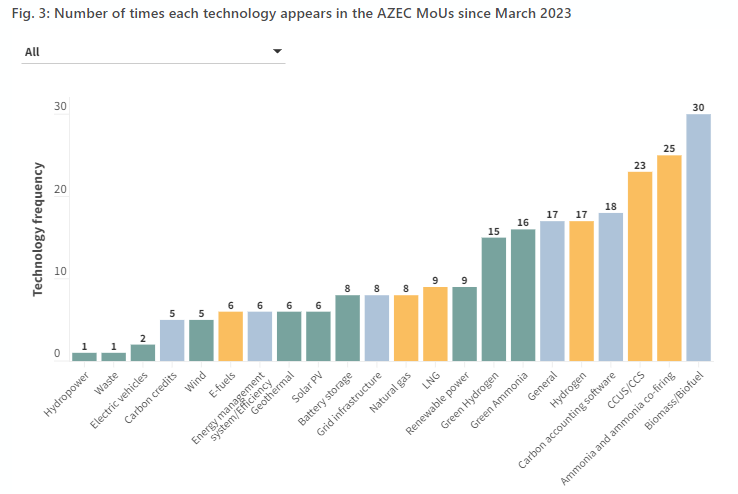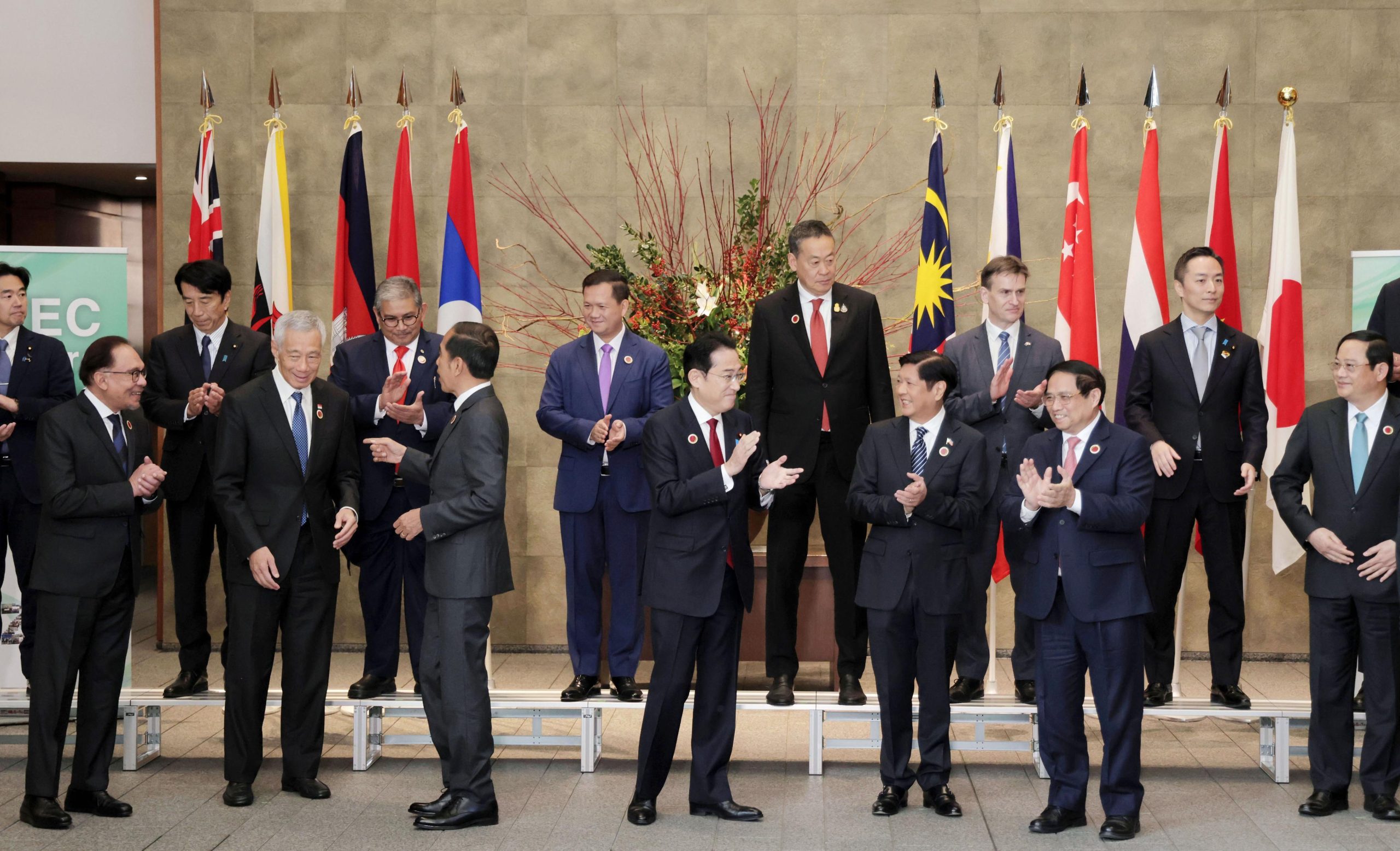Japan’s Asia Zero Emission Community (AZEC) supported 56 projects using fossil fuel technologies in Southeast Asia — including LNG and carbon capture
During his three-year tenure as Japan’s prime minister, Fumio Kishida created the Asia Zero Emission Community (AZEC) to, in his words, “help Asia decarbonise together”.
But a year and a half after AZEC was formally launched, a new report by the international research organization Zero Carbon Analytics shows that one-third of agreements between Japan and AZEC member countries promote or prolong fossil fuels.
Of the 158 projects financed by Japan under this initiative, 56 include fossil fuel technologies such as natural gas, co-firing ammonia with fossil fuel in power plants, hydrogen produced with fossil fuels, carbon capture and storage (CCS) and e-fuels.

A report by Zero Carbon Analytics shows the projects signed under the AZEC initiative leave renewable energy on the sidelines and favour technologies that promote or prolong fossil fuels. (Photo: Zero Carbon Analytics)
The alleged climate benefits of these technologies are hotly disputed. While some studies have claimed gas is a less polluting fossil fuel than the coal used for electricity in much of Southeast Asia, a study published last week suggested that it can actually be more polluting, especially when it is imported across the sea in a liquid form called LNG.
Ammonia co-firing involves burning ammonia alongside coal in coal-fired power plants. While this reduces the amount of coal burned, critics note that the plants still burn mostly coal and that the co-firing can encourage governments to allow the coal-fired power plant to keep operating longer. Similarly, carbon capture and storage technology traps just some of a power plant’s emissions and can encourage the authorities to keep the plant open longer.
Ammonia, hydrogen and e-fuels are all fuels that can be made in more polluting ways using fossil fuels or cleaner ways with renewable electricity.
Louisiana communities are suffering from Japan-funded LNG exports
AZEC was launched in 2023 to advance climate co-operation in Asia, with Japan playing a central role. Kishida likened it to an Asian version of the European Coal and Steel Community – a predecessor to the European Union. Members include most countries in Southeast Asia and Australia.
But Japan’s fossil fuel investments – particularly gas projects – through AZEC are inconsistent with its pledge to stop overseas financing for unabated fossil fuels, experts told Climate Home News.
At their 2022 meeting in Berlin, G7 leaders all agreed to “end new direct public support for the international unabated fossil-fuel energy sector by the end of 2022, except in limited circumstances clearly defined by each country that are consistent with a 1.5 °C warming limit and the goals of the Paris Agreement”.
Amy Kong, author of the report on AZEC, said: “Relying on these technologies is a slower and more expensive path to decarbonisation for the region, and risks derailing national power-sector emissions targets set out in the International Energy Agency’s 2050 net zero scenario.”
Shigeru Ishiba, Japan’s recently appointed prime minister, has suggested the country will prioritise regional cooperation and has argued in favour of renewable energy. However, there is still little information on the future of AZEC under his new government.
Zero emissions community
Japan’s goal with the AZEC initiative was to invest public funds from its climate transition bonds to “create a huge new decarbonisation market in Asia”, former PM Kishida said during the community’s launch.
Through AZEC, member countries could apply for Japanese funding for energy projects. More than 150 projects have been approved between the Japanese government or government-backed institutions and their AZEC counterparts, the Zero Carbon Analytics report shows.
Initial investments were administered via a host of Japanese government-backed institutions, including the environment and the trade ministries. Many of Japan’s private-sector firms have also partnered with these public entities.
But according to Zero Carbon Analytics’ analysis, over one-third of those MOUs will promote fossil fuels or technologies that prolong the use of fossil fuels. This threatens to lock in coal and gas investments that may be difficult to reverse, the report says.
On the other hand, 54 MOUs signed under AZEC include renewables and electrification technologies, about a third of the total. These include solar PV power, wind, hydroelectric, geothermal, battery storage, electric vehicles, green hydrogen and ammonia, and waste management. But of these 54 agreements, only 11 include wind and solar.
UAE’s ALTÉRRA invests in fund backing fossil gas despite “climate solutions” pledge
‘False solutions’
Non-governmental organizations across Asia have raised concerns that AZEC primarily promotes fossil-based technologies.
Ayumi Fukakusa, deputy executive director of Friends of the Earth Japan, told Climate Home that technologies like CCS, ammonia and biomass co-firing, and LNG “only delay climate actions and prolong the life of fossil fuel infrastructure”. She added that “AZEC will further lock in Asian partners in massive emissions and doesn’t support real decarbonization”.
Hanna Hakko, a senior associate with the E3G think-tank who specializes in Japanese policy, argued that Japan’s AZEC initiative would “serve the region far better by enablin
Read More

